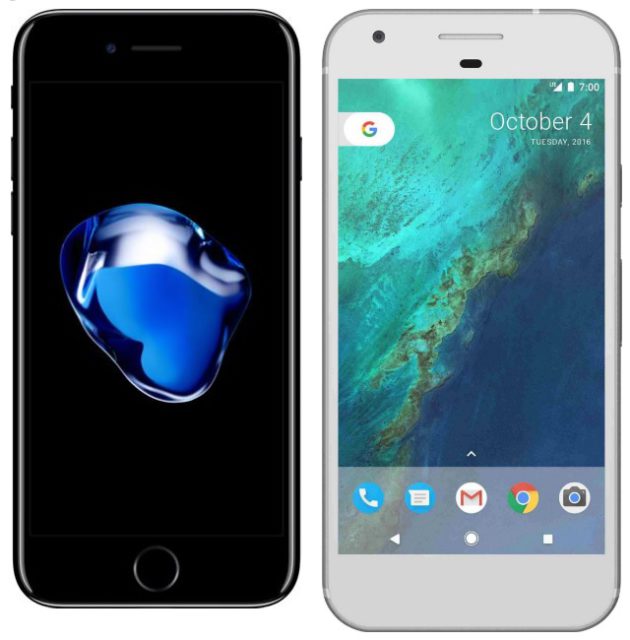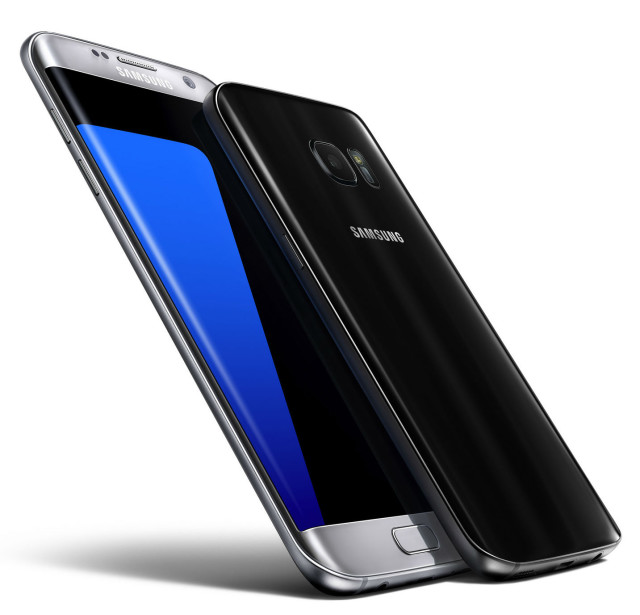Is Android experiencing difficulties with bringing enough devices to the top segment of the market?

Despite the leading position of the operating system from Google in terms of market share, most of the purchased devices belong to the cheaper price categories. Yes, the software Android has already reached the level where the device offers a decent user experience out of the box, but to make an organized 'attack' on the segment of flagship devices it is necessary to engage in support of innovation and design development, while developing the technical part.
What is it all for? In the considered price category, the lion's share of the proceeds is received Apple. As a rule, the remainder goes to Samsung, which, however, does not correspond to the situation in the current quarter. Why would a conventional company take risks and change its business model, when manufacturers Android – devices attack medium and budget niches, competing with each other there? There will always be a handful of ambitious devices in the high-end segment of the market that showcase the capabilities of manufacturers, but if we talk about achieving financial success through high sales of expensive devices, then only a few companies are able to achieve the desired level of sales.
In this aspect, the palm among large Android manufacturers belongs to Samsung, whose flagship S7 has confirmed the expectations of many consumers in terms of premium user experience. As one of the manufacturers with a high-selling strategy in the premium segment, Samsung plays an important role in the ecosystem Android, but recent events have shown that this approach can be a kind of failure point for Google. Taking into account the tense atmosphere at the Note 7, and assuming that the shaky brand reputation will negatively affect sales of the Galaxy S8, we can conclude that the manufacturer of the best-selling Android – devices shines a place only among the 'injured players'.
LG have good opportunities to create a great premium smartphone, but the company has not yet expressed its ambitions to intensify the struggle for the title of manufacturer of unrivaled devices. The same can be said for Huawei and the P9 and Mate 8 smartphones. 'On paper' many manufacturers have 'charged' devices, but do these manufacturers want to do their best to release and promote mainstream flagship smartphones? Or are they happy with relatively short production cycles for top-end devices that are sold in small batches and become a way to boost sales in low-cost lines? The second option is the answer, I'm afraid.

I don't think Pixel or Pixel XL will be the solution. The new line of smartphones from Google, presumably, grew out of the Nexus series, but although these devices were enthusiastically accepted by developers and the geek community, the latest versions were not at the level of flagships. The aforementioned Google smartphones were the first in two respects: the first attempt to enter the premium segment and the first step towards entering the mass consumer market. Both aspects are quite difficult to implement, especially with the first devices. Google will have to find a balance between the two as the company embarks on a new 'adventure around the world'. The company will also have to make sure that the presence of Pixel smartphones doesn't scare off current device partners. For those who are already uncomfortable investing significant funds and resources to maintain a strategy in the premium market, the fact that a partner providing OS for devices is using exclusive software in a branded device in an attempt to seize power in the segment and fill its video Hosting advertisements against competitors' devices will not at all contribute to productive cooperation.
Google could theoretically reach the sales level Apple iPhone. Moreover, it is possible to replace the Note 7 with a Pixel XL as the 'default' phablet for the current generation of devices. This potential cannot be denied, but looking back at the history of sales of Google devices, you can see that there is no obvious prerequisite for achieving commercial success with the first smartphones in the Pixel line.

Many have tried to take over the premium smartphone market. Apple has perfectly mastered the art of winning, but Samsung can also compete with Cupertino on equal terms. Other companies have tried and failed, most recently Sony. There are many flagships on the market, but top performance on a small number of exclusive devices will not determine the market. How Android will be able to reach potential recommendation users of premium smartphones without an abundance of devices in the segment? How can developers get access to wealthy users who happily shop on every freemium app? How can advertisers attract these users to promote their products?
Android leaned too much towards the huge budget market and the relatively small mid-range segment. But understanding and realizing the very essence of what a smartphone can do is determined precisely in the premium segment. And it's not Google that rules.
Original article by Evan Spence
The questions raised in the above material are asked every time after the release of a smartphone, to which Google has had a hand in one way or another. And here's why: in the minds of the majority Android it is not so often associated with something elite and top-end, as it happens with products Apple. Previously, the situation was absolutely not in favor of the OS from Google, now you can observe how gradually more and more users begin to see that the design seems to be quite good, and you can use the devices quite equally with iPhone, otherwise and more convenient. Google made another move in the game for a place in the top segment of the market, although it is not yet clear how the user community will react to new devices. In my opinion, Pixel devices need their own style and image, of course, keeping in mind the trends, but not copying iPhone. It is with the external component that the lion's share of impressions and sensations from the user experience is often associated.
Google's desire for the top market is understandable: there is both profit and a business segment, which Mountain View wants to count on. But, as the author implies, for this you need to change something in the device distribution model. It seems that the company will not stop there. In your opinion, will Google be able to reach the level Apple? Does any of the Android manufacturers (other than Samsung) have the potential to create a truly mainstream smartphone for the premium segment? Or will the majority prefer to sit back and wait for a breakthrough in order to subsequently copy successful decisions?
